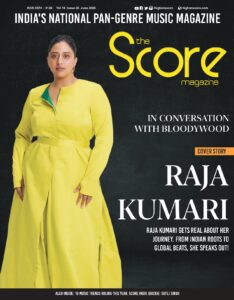MTV or Music Television celebrated its 40th birthday last month. Regardless of how old you are or what generation you belong to, when you listen to the term “MTV” you will surely know what it is about.
At present, it has been criticized by many older generations, who feel discontent because the channel has gone from being totally oriented to music, to becoming more of a reality TV channel. Love it or hate it, you can’t deny the fact that MTV has had at least some impact in our lives at one point of time.
The Beginnings
It all started in 1977 when Warner-Amex Cable created Qube, one of the first interactive television platforms that offered different channels with “categories”, among which was the children’s channel Pinwheel (future Nickelodeon) and Sight On Sound, a music channel that allowed viewers to vote for the artist or song to broadcast.
This system was a resounding success, so on August 31st, 1981, Music Television (MTV) went on air from New Jersey. It was the same channel as before but with a new name and with the innovation that this time it was going to contain music videos (this concept was devised by Michael Nesmith of The Monkees).
Its programming was organized by Bob Pittman, a famous music producer of the time who would later become the CEO of MTV Networks. At the time there was no other channel that played music 24/7 and it was a great alternative for people who had to call radio stations to ask them to put a song, they just had to tune in to the channel and enjoy watching basically any hit song.
The Rise of the Music Video
MTV aired with the words “Ladies and gentlemen, rock n ‘roll!”, and the first video in history that MTV aired was the aptly titled “Video Killed The Radio Star”, by The Buggles. These videos were presented by VJs or Video Jockeys, people who had the same function of a DJ but with videos. They created playlists and these were broadcast on the channel. MTV’s promotional video featured an astronaut with the MTV flag on the Moon, a metaphor about the groundbreaking impact of MTV.
During its early days, everyone wanted to appear on MTV and MTV wanted the most relevant music of the moment to be there. It’s hard to number how many artists were able to jumpstart their careers by appearing on MTV: Madonna, Michael Jackson, Bon Jovi, U2, Duran Duran, Motley Crue, Poison, just to name a few.
MTV Becomes Less “Musical”
For the first two decades of its existence, MTV stuck with music but as the new millennium dawned, MTV started featuring other kinds of content as well. Reality shows like The Real World, artist talk segments, comedy shows like Punk’d and Jackass started dominating the airtime. Over the years, the shift away from music was so drastic, that MTV changed its logo in 2011, signifying that it wasn’t just a music channel anymore. MTV reincorporated the old logo in an effort to go back to its roots, though, in the world of streaming, it’s highly unlikely that the channel would’ve held any relevance anyway.
MTV is far removed from its nascent days of August 1981, but regardless of its current state, nobody can deny that it has been a cradle of pop culture, counter culture and musical entertainment. It made the careers of many superstars who have become a part of pop culture folklore. To put it simply, we wouldn’t be where we are now if it weren’t for MTV. Whether you see that as positive or negative, is up to you.








